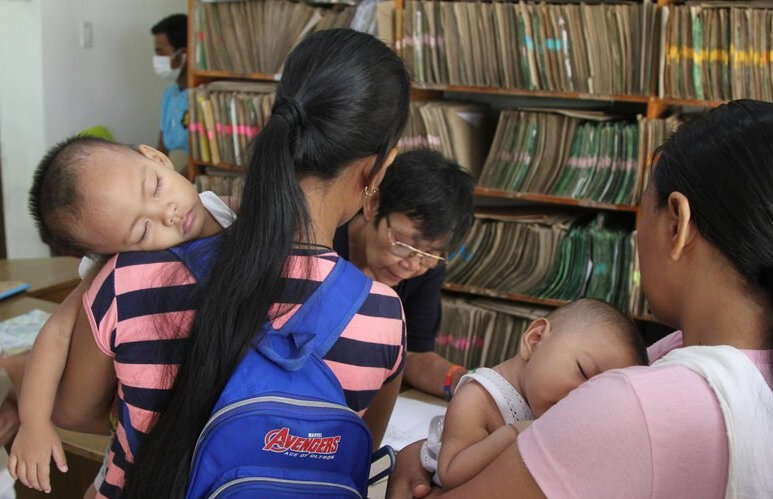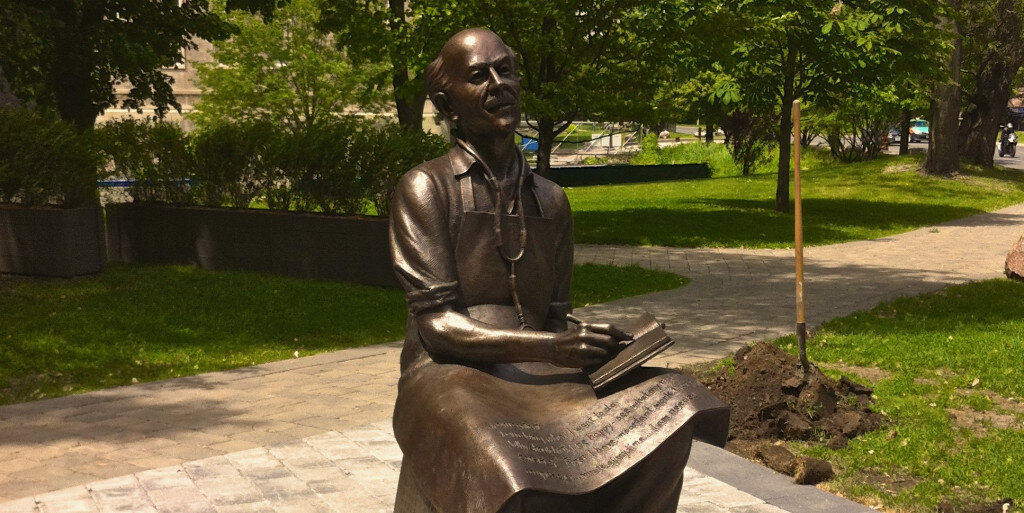Editorial

A Double-Edged Sword: The Implications of Dual-Use Research
Scientific research holds immense value for society, but it can also be a double-edged sword if used for harmful purposes…

The Spillover Effect of Vaccine Hesitancy
As of July 2019, the Philippines reported over 39,000 measles cases, which is the country’s largest measles outbreak since 2014. The reason for the outbreak may be linked to a controversy surrounding the dengue vaccine…

Rehabilitation in Health Systems: Achieving Equitable Global Policy
According to the World Health Organization (WHO), rehabilitation is “a set of measures that assist individuals who experience, or are likely to experience, disability to achieve and maintain optimal functioning in interaction with their environments”…

Addressing Stigma through a Theatre-Based Program in Western Kenya
The streets of Eldoret, Kenya play a critical role in the lives of street-connected youth who often find themselves in situations that violate their basic human rights…

Maximizing the Potential of Technology through Assistive Products: The Launch and Evolution of the WHO’s GATE Initiative
The World Health Organization (WHO) estimates that more than one billion people worldwide require assistive products. The number of people requiring assistive products is expected to increase to over two billion by the year 2050…

Dr. Paula Braitstein, Associate Professor at the Dalla Lana School of Public Health, Awarded 2017 CIHR-IPPH Trailblazer Award
Residing in North-Western Kenya, Dr. Braitstein received the CIHR-IPPH Trailblazer Award for her research and service to street youth in Eldoret, Kenya…

Mending the Broken Hoop: Indigenous Health and the Dis-ease of Disconnection
In 2015, Canada’s Truth and Reconciliation Commission (TRC) identified significant gaps in health outcomes between Indigenous and non-Indigenous communities…

Good Parenting for a Good Life: Breaking the Cycle of Street-Involvement (Malezi Bora na Maisha Mazuri)
The streets of Kenya are home to up to 300,000 children and youth (IRIN, 2007), many of whom reside in the city of Eldoret. These young people enter into a life on the streets for a number of reasons…

The Mountain of Youth: What We Can Learn from Okinawa, Japan
The elderly population of Okinawa, Japan has gained worldwide recognition for enjoying exceptionally long lives with autonomy even into advanced age. This phenomenon has inspired many researchers seeking to unlock the secrets of healthy aging…

“The Fight of the Moment”: Bernie Sanders on the fight to bring universal health care to the United States
On Sunday, October 29th, 2017, U.S. Senator Bernie Sanders (Vermont) and Dr. Danielle Martin, Associate Professor at the Institute of Health Policy, Management and Evaluation based in the Dalla Lana School of Public Health, met at Convocation Hall to discuss what lies ahead in the fight for a universal health care system in the United States…

Dean’s Leadership Series: Reflections on Climate Change and Urban Health
The final instalment in the Dean’s Leadership Series, organized by the University of Toronto’s Dalla Lana School of Public Health (DLSPH), focused on the topic of maximizing urban health and minimizing climate change…

Controlling Malaria with Genetic Engineering: Is The World Ready?
Which animal is statistically most likely to kill you? While your mind may have conjured images of snarling lions, grizzly bears, or venomous snakes, any public health researcher would tell you unequivocally that the deadliest animal in the world is the mosquito…

Combining Epidemiological and Market-based Approaches to Increase Access to Antifungals in Sub-Saharan Africa
Today’s capitalist global economy has perpetuated the serious disparities in healthcare delivery between the rich and poor. Within this economic system, market forces are a greater determinant of medical resource distribution than actual health needs. This imbalance represents a significant barrier to the provision of equitable access to medicines…

The Power Is In Our Hands: Fetal Heart Monitor Uses Human Energy to Save Lives
Four million newborn deaths occur in developing countries every year, where access to health care can be low or, in some cases, virtually non-existent. Furthermore, of all child deaths under the age of 5 that occur annually, nearly 40% are among newborns during their first 28 days of life…

PEACH Program Provides Compassionate Palliative Care for City’s Homeless
On any given night, over 30,000 people are homeless in Canada with 2,880 unsheltered outside in cars, parks or on the street, 14,400 staying in emergency shelters, 7,350 staying in shelters for violence against women, and 4,464 people in temporary institutional accommodations such as hospitals, prisons or interim housing…

When Mating Kills: Rewiring Nature to Kill Mosquitoes
Before coming to Canada from Bangladesh, going to sleep most nights required a lot of preparation. I had to spray my room with insecticide, put up a bed net, or both. The precautions were mainly for a good night’s sleep – being bitten all over by mosquitoes isn’t exactly conducive to sleep, and makes for a very itchy morning…

Photo Narrative: Geriatric Camps in Kashmir, India
Under the National Programme for Health Care of Elderly (NPHCE), geriatric camps were conducted at six villages and hamlets in the Trans Singela area of Khaltse Block, Leh Ladakh from August 1, 2013 to August 11, 2013.

Health Politics in Focus: Dr. Norman Bethune (UofT 1916)
While a truly boundless graduate from University of Toronto (U of T), Dr Bethune is not a familiar name to most U of T students. A classmate of Dr. Fredrick Banting (co-discoverer of insulin, who is well known within the UofT community), Dr. Bethune was recently recognized at the University of Toronto by a sculpture made in his honour near the Medical Sciences building…

One World, One Vision: providing equitable care for retinoblastoma

Older Adults Living with HIV/AIDS on the Rise in Canada
The number of older Canadians living with HIV has spiked over the past decade and a half. The reason for this trend is twofold. First, increased access to improved antiretroviral therapy allows people currently living with HIV to live longer lives and age with HIV. Secondly, more and more Canadians are now receiving an HIV diagnosis in later stages of life.
